Period: 2022-2023
Description: The 3rd Annual Cycle of SC2C.Aero occurred from December 2022 to November 2023, consolidating the actuation of SC2C.Aero in the bilateral cooperation Brazil-Sweden as well as in the space research planning in Brazil. Main results are summarized below. The annual cycle finished with the 3rd Workshop of SC2C.Aero in November 2023.
Results:
1 – Demand Search:
Two main activities occurred in this cycle that contributed to the continuous identification of demands from the aeronautical and space areas, including industry and government. Firstly, the participation throughout 2023 of Prof. Victor De Negri in the regular meetings of the Executive Committee of the High Level Group (HLG) on Aeronautics. This committee includes representatives from government, industry, non-governmental agencies, and research institutions, from Brazil and Sweden, for elaborating the annual agenda of the RD&I collaboration in aeronautics.
Secondly, SC2C.Aero, through Prof. Talita Possamai, led the implementation in 2021 to 2026 of the Catarina Constellation Project, which aims the development of a constellation of nanosatellites for civil defense and agricultural applications in Brazil. The project has the participation of government entities such as Federal University of Santa Catarina – UFSC, the Brazilian Space Agency – AEB, and the National Institute for Space Research – INPE – and private sector – SENAI Institute for Innovation in Embedded Systems. Regular management meetings and technical project reviews took place during 2023 and 2024 from where demands regarding the technologies and uses of nanosatellites could be identified.
2 – Offer Capacity Validation
In the space segment, SC2C.Aero consolidated, with SpaceLab and UFSC – Campus Joinville, advances in the area of subsystem development and environmental testing for nanosatellites.
Furthermore, in 2023, SC2C.Aero completed an important task of implementing the Collaborative Network of Graduate Programs in Aeronautics and Space at UFSC, abbreviated as UFSC Network in Aeronautics and Space. The initiative started in 2021 when 12 graduate programs at UFSC were identified and an initial approach was made where the main goals and characteristics of this transversal program were established. That year, the proposal was presented to the Pro-Rector of Graduate Studies at UFSC and it was considered fully relevant, and it was decided that a resolution guiding the guidelines of this transversal program would be published by PROPG. Subsequently, a committee was formed with representatives of 3 postgraduate programs, coordinated by SC2C.Aero, to draft a draft resolution that was presented to PROPG.
In July 2022, the Pro-Rector Prof. Werner Kraus Jr. resumed the analysis of the proposal and moved forward with the creation of a broad resolution, culminating in the publication of REGULATORY RESOLUTION No. 5/2022/CPG, NOVEMBER 24, 2022, which provides for Collaborative Networks of Graduate Programs at UFSC (PPG-UFSC Networks).
The UFSC Network’s Bylaws in Aeronautics and Space was published on June 29, 2023, establishing the UFSC Collaborative Network of Graduate Programs in Aeronautics and Space, composed of seven graduate programs:
- Automation and Systems Engineering
- Electrical Engineering
- Electronic Systems Engineering
- Energy and Sustainability
- Engineering and Mechanical Sciences
- Mechanical Engineering
- Materials Science and Engineering
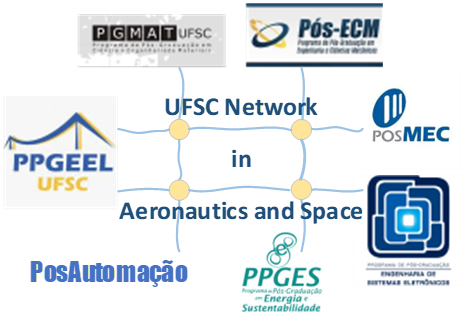
Information about how the UFSC Aeronautics and Space Network works, the program’s members, and how master’s and doctoral students can be integrated into it are available here.
3 – Annual Matchmaking:
From Nov. 22 to Nov. 24, 2023, two workshops were organized at Federal University of Santa Catarina. Nov 22 and 24 occurred the 4th SARC-BARINet Workshop, which is a joint organization of SARC – Swedish Aerospace Research Center (Sweden) and BARINet – Brazilian Aerospace Research and Innovation Network (Brazil). The emphasis was on presentations from PhD-students, and active researchers, to build and strengthen networks within the younger generation. The event occurred in a hybrid format at UFSC and the program can be found at the SARC website.
The event that closed the 3rd Annual Cycle took place at the Department of Mechanical Engineering at UFSC on Nov 23-24. The 3rd Workshop of SC2C.Aero included four panels with leaders from companies as Embraer (Maurílio A. Novaes Jr.), Saab (Per-Olof Marklund), Boeing (Mario Lott and José A. T. G. Fregnani), and Visiona (João Paulo R. Campos), directors of the agencies INNOVAIR, FINEP, FAPESC, and AEB, and professors and researchers from research institutions as CERTI, SENAI, UFSC, Lulea University, ITA, DCTA, and Linköping University. Three tech-based companies (IANA, Innospace, and Aerodriver) presented their products and competences on aeronautics and space.
The auditorium had full occupancy, being 21% from industries, 45% from universities, 23% from R&D&I institutions, and 11% from government and research & funding agencies.
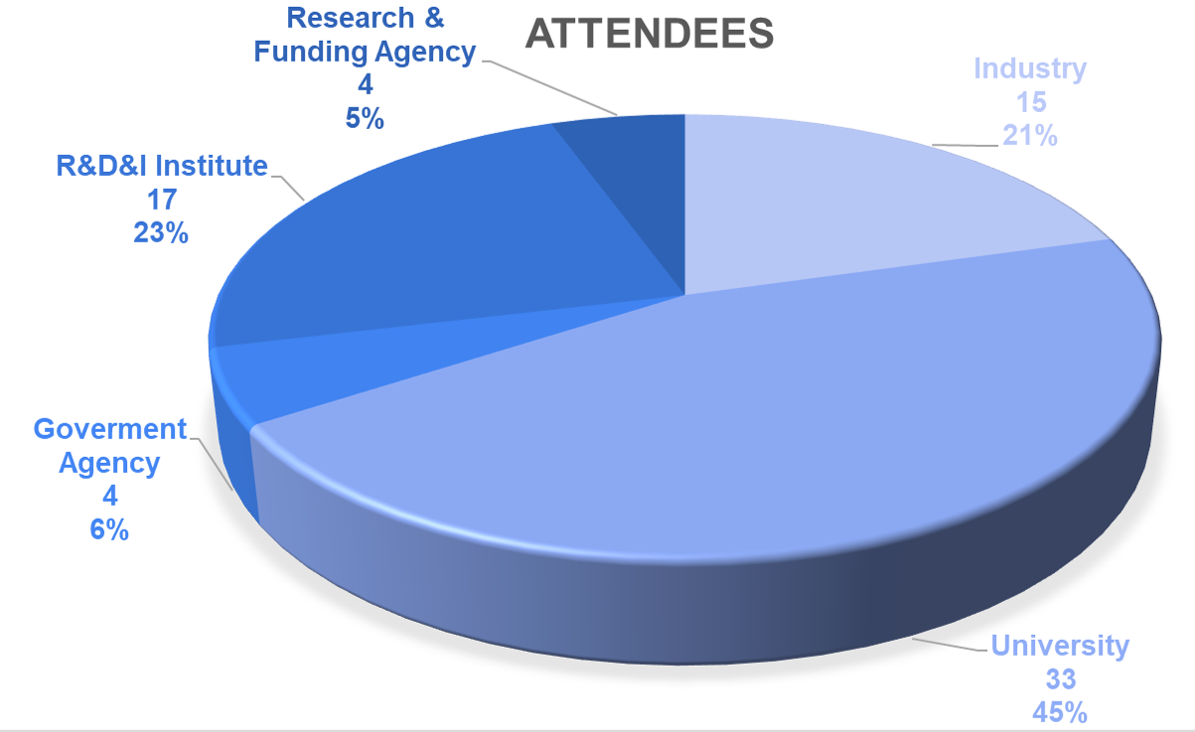
Moreover, 54% of presentations were done by leaders of industries and 13% from government agencies, who are those who define demands on research and innovation. As can be seen, a very good equilibrium of participants and presenters from the triple helix was achieved, allowing the participants a very fruitful interaction.
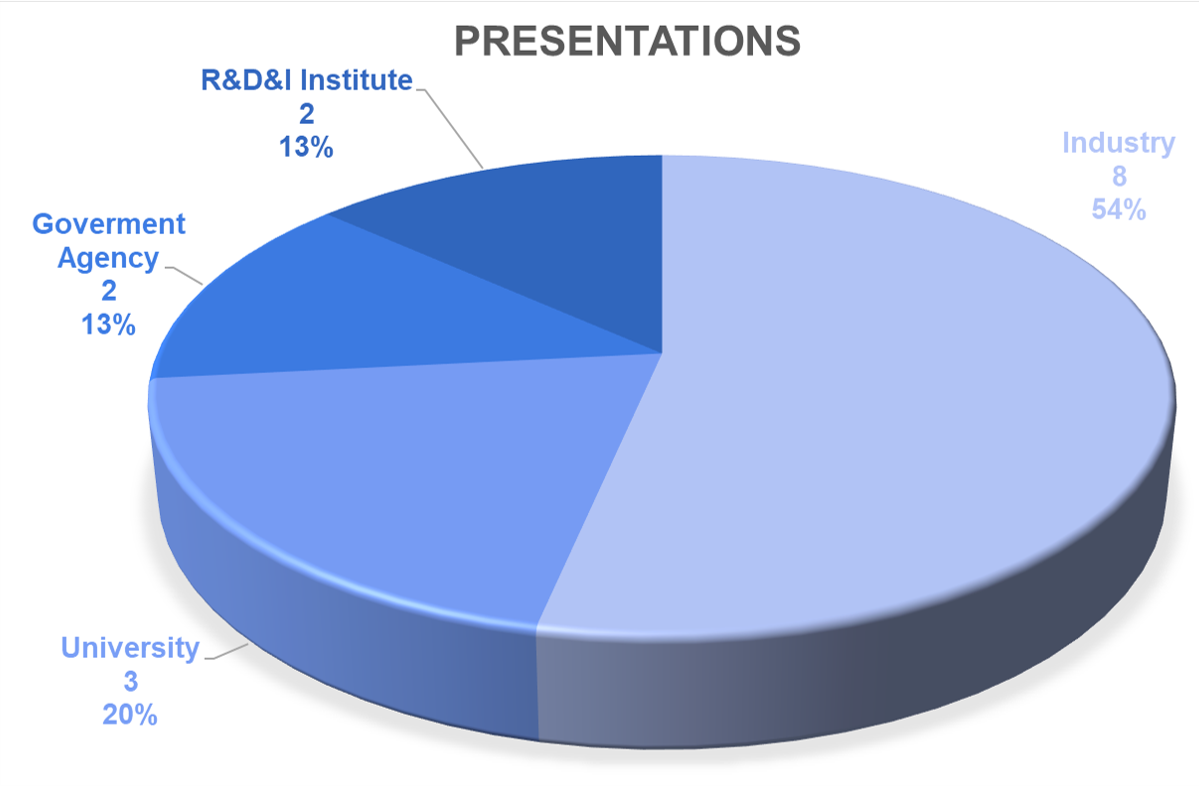
On Nov 24, anchor companies, technology-based companies, and universities had the opportunity to private discussions about technical and business points of interest.
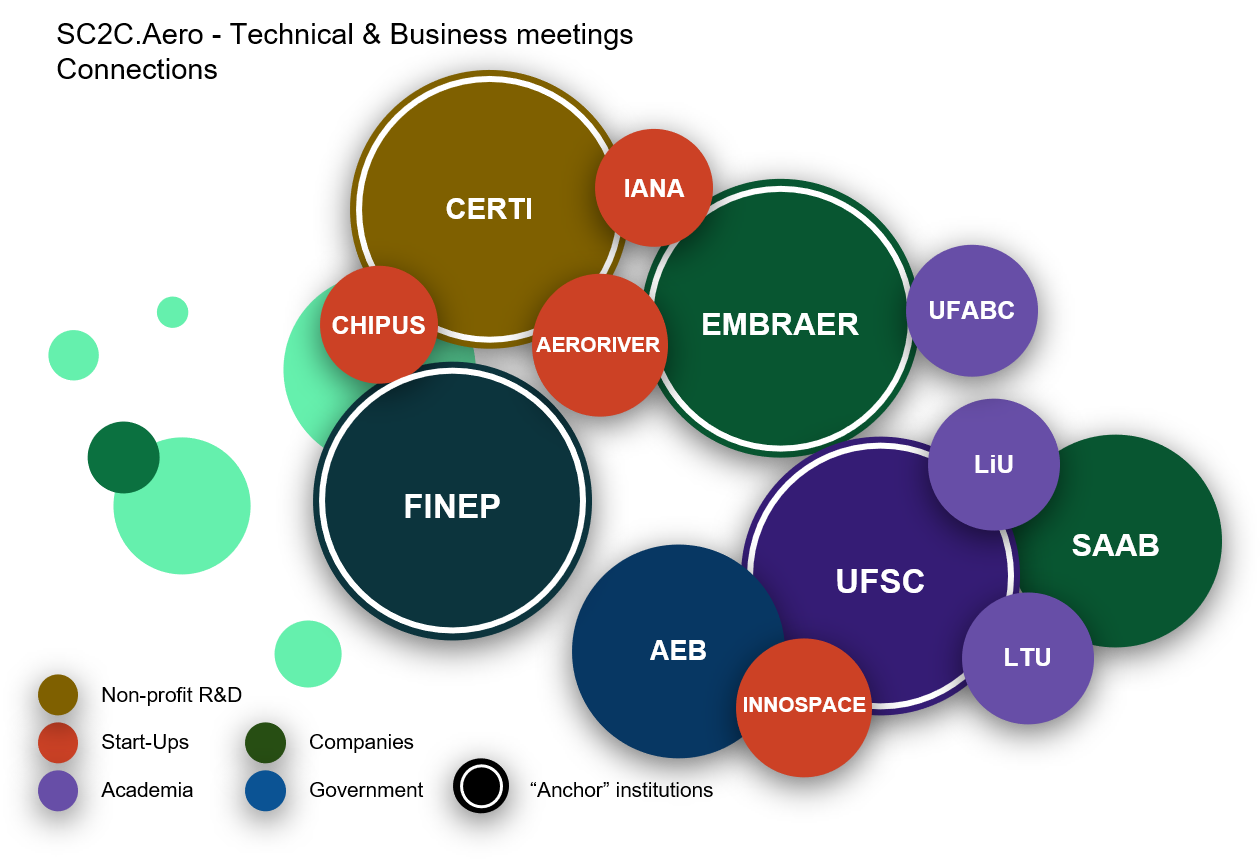
Technical visits from representatives of companies, agencies and universities to hosting laboratories had the objective to present the technical and scientific competences and stimulate academic-industrial cooperation. The hosting labs (SPACELAB, LVA, LABTUCAL, LASHIP, and CERTI) are technical groups members of SC2C.Aero.
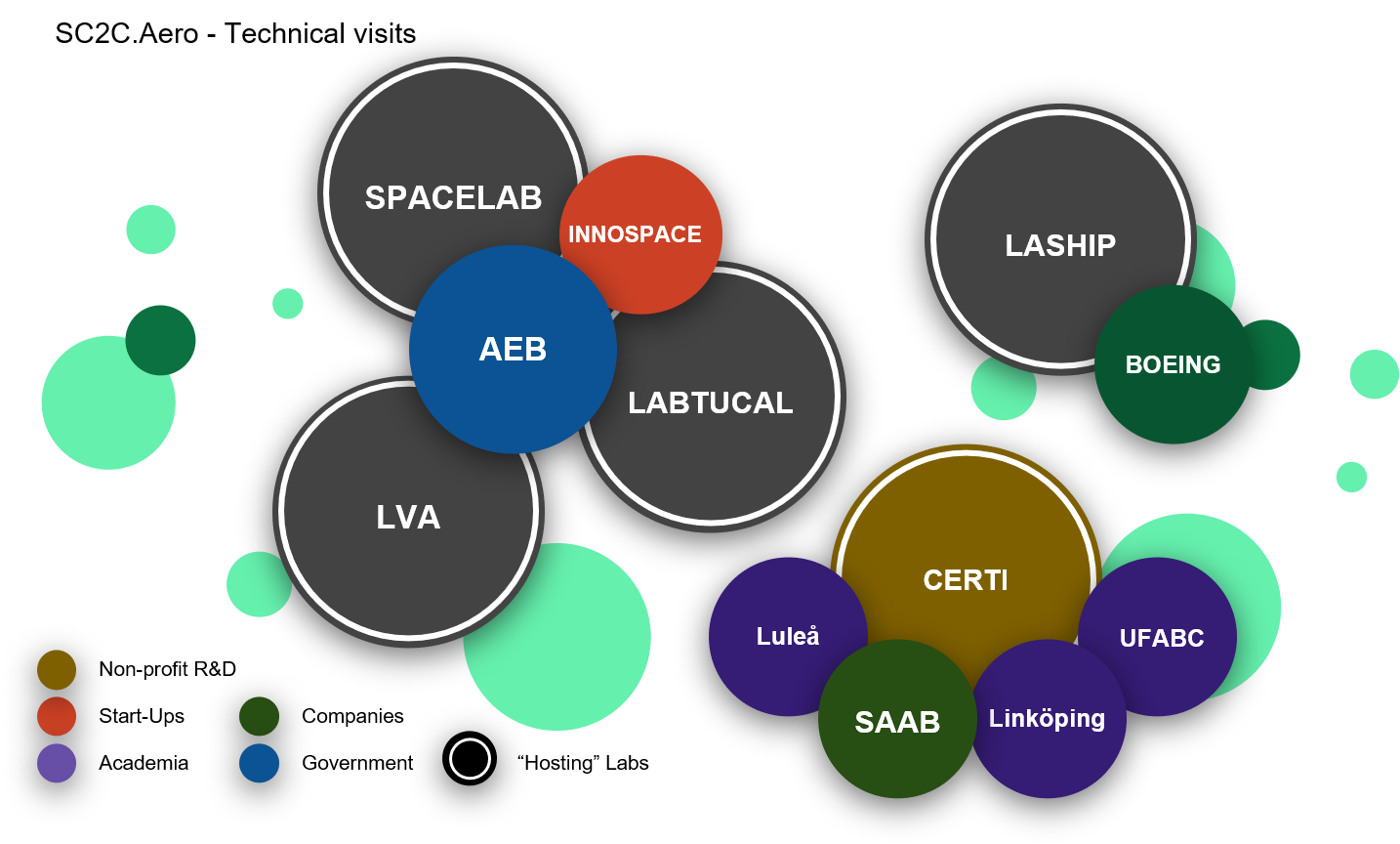
Further information available at the workshop website. Click here.

